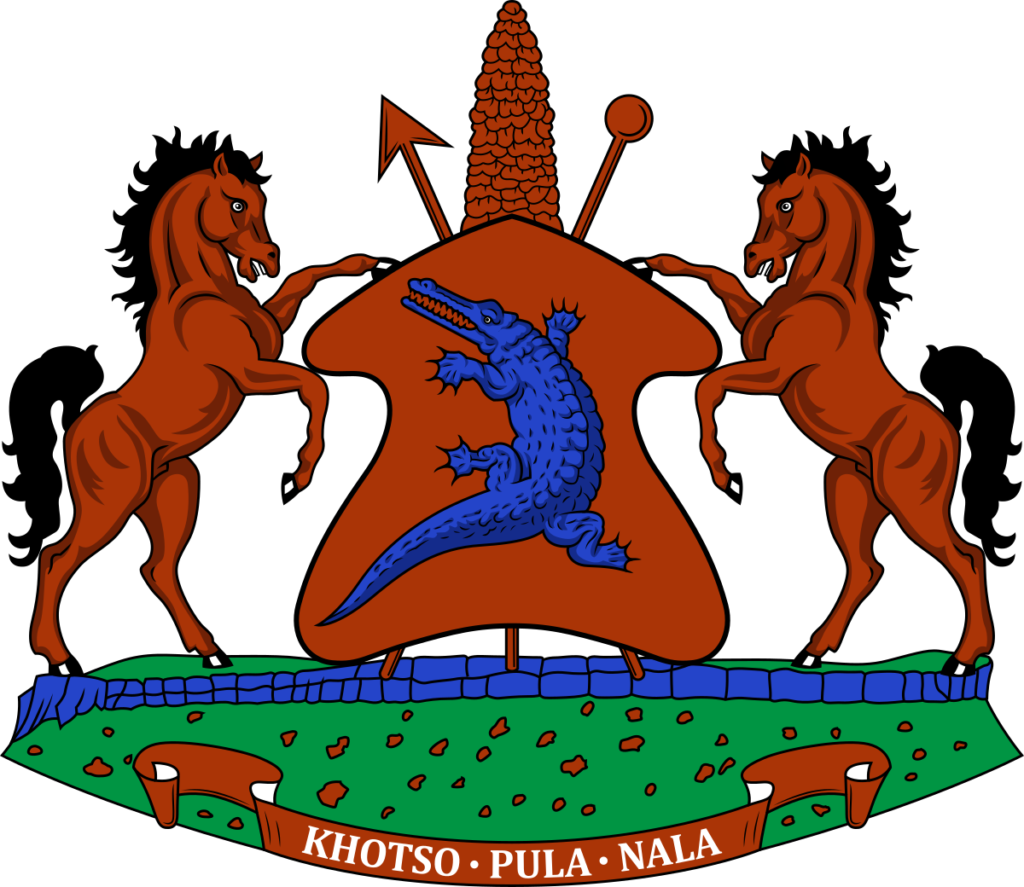High Court
- Courts
The High Court
The High Court of Lesotho was established in terms of Section 118 and 119 of the Constitution. The High Court has unlimited original jurisdiction to hear and determine any civil and criminal proceedings (what may be termed as its “ordinary jurisdiction”). In addition, it has “such jurisdiction and powers as may be conferred on it by this Constitution or by or under any other law.” It has both appellate and original jurisdiction. Section 22 stipulates that where a person alleged that his rights have been infringed shall place a matter before the High Court and Chief Justice shall allocate such a matter to three Judges. In 2000 the Chief Justice, in the exercise of the powers conferred upon him by sections 22 (6) and 69 (5) of the Constitution, made and published the Constitutional Litigation Rules 2000 concerning the practice and procedure of the High Court in the exercise of its constitutional jurisdiction. In terms of the interpretation provision of those rules (rule 2) “Court means the High Court established by section 119 of the Constitution and exercising its jurisdiction under section 22 of the Constitution.” Since 2000, therefore, there have existed two parallel sets of rules, one set applicable to matters in which the High Court exercises its ordinary jurisdiction, and another where its constitutional jurisdiction is invoked.
It has appeal and review powers over the decisions of the Subordinate Courts. The High Court has the following specialized divisions:
• High Court
The King, acting in accordance with the advice of the Prime Minister, appoints the Chief Justice. Judges are appointed by the King acting in accordance with
the advice of the Judicial Service Commission. (Sections 120 (1), (2) and 120 (5) of the Constitution). The Honourable Chief Justice is the Head of the Judiciary.
There are fifteen judges in the High Court. Three Judges are based in the Commercial Division, another two are based in Northern Division and two Judges
are assigned to the Labour Appeal Court.
Land Court
Land Court is a division of the High Court established in terms of Sections 73 and 74 of the Land Act 2010. It has jurisdiction over appeal matters from District Land Court. There are exceptional circumstances where it may sit at the court of the first instance. Currently, there are two judges are earmarked for Land Court.
Commercial Court
The commercial practice in the High Court commenced in 2000, High Court (Amendment) Rules 2000. This position was followed by further amendments in
2003, 2009 and 2011. The 2009 amendment was a major one as it established the commercial division of the High Court, setting out comprehensively its
objectives and the nature of the business of the commercial court.
Labour Appeal Court
Labour Appeal is established by the Labour Code (Amendment) Act 2000, sections 38 and 38A. Labour Appeal Court has exclusive jurisdiction to adjudicate over labour appeal cases from the Labour Court. Labour Appeal Court consists of a judge of the High Court nominated by the Chief Justice and two assessors.
Court Martial Appeal Court
Court Martial Appeal Court is the Court established by the Lesotho Defence Force Act 1996, section 138. It is the court that has jurisdiction to deal with appeals from Court Martial. It is composed of a President; being a judge who is a retired high-ranking official of the Lesotho Defence Force (LDF).
The High Court Current Bench comprises the Following Justices
High Court Main Division
- Hon. Chief Justice Sakoane Peter Sakoane
- Hon. Justice Tseliso Monapathi
- Hon. Justice Molefi Evaristus Makara
- Hon. Justice Mabatsoeneng Grace Hlaele
- Hon. Justice Tseliso Joachim Mokoko
- Hon. Justice Mafelile Patricia Ralebese
- Hon. Justice Maliepollo Makhetha
Land Court
- Hon. Justice Maseforo Mahase
- Hon. Justice Polo Banyane
High Court Northern Division
- Hon. Justice Hopolang John Nathane
- Hon. Justice Makampong Gugu Mokhoro
High Court Commercial Division
- Hon. Justice Moroke Mokhesi
- Hon. Justice Realeboha Mathaba
- Hon. Justice Moneuoa Kopo
Labour Appeal Court
- Hon. Justice Kekeletso Moahloli
- Hon. Justice Fumane Khabo
Court Annexed Mediation (CAM)
The mediation process is established and governed by the High Court Mediation Rules 48, 2011. The Rules were launched by Chief Justice on June 3, 2011. Mediation is a civil process designed to take a few logical steps. The following is a summary of the two procedures for referring a dispute to CAM. A case file is opened in the High Court and in the pleadings each party includes a brief statement indicating whether that party consents to or opposes a referral of the dispute to mediation under the CAM programme. If a party opposes the referral to mediation, then upon proper cause being shown by that party the Mediation Administrator makes a recommendation on that party’s motion for exemption from mediation under the CAM Rules. This process applies
to cases filed from the commencement of the Rules. All pending cases filed before the commencement of the CAM Rules shall be mediated upon referral to CAM of the case by the Judge allocated to the particular case. This can be done at any stage before the judgment of such a matter is made.
Official Opening Of The High Court
The High Court of Lesotho has two Seasons and each season has two terms. For the opening of the Judicial year, the first working day of February there is an established tradition whereby the High Court holds an Opening Ceremony to mark the beginning of the First Session, First Term every year at the Palace of Justice premises in open court. The Chief Justice expresses the commitment of the Judiciary to continue administering justice to every person without fair or favour. On this occasion members of the army provide Judiciary with the Guard of Honour and a band as is customary for the ceremony. In this ceremony, even the members of the public and media are usually invited. READ MORE ABOUT THE HIGH COURT OPENING HERE.





